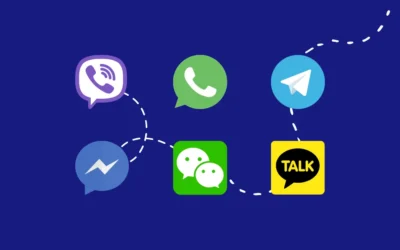The Metaverse is rapidly transforming from a buzzword into an immersive digital world, offering users the ability to socialize, work, and play in virtual environments. With advancements in Virtual Reality (VR) and Augmented Reality (AR), the Metaverse goes beyond physical space, unlocking endless possibilities for creativity, education, and business. This digital frontier also provides new ways for individuals to express themselves, blending the physical and digital realms. As technology continues to evolve, the Metaverse is set to become an integral part of our daily lives, shaping the future of online interaction.
Key Platforms in the Metaverse
- Facebook Horizon (Meta): A cutting-edge VR platform for socializing, gaming, and exploring virtual spaces. As VR technology advances, users can interact in immersive digital worlds with friends or strangers from anywhere in the world, creating real-time connections.
- Decentraland: A blockchain-based virtual world where users can buy land, create content, and socialize. The integration of NFTs allows users to own and trade digital assets, creating a new economic model and redefining the concept of virtual ownership.
- Roblox: A user-driven platform for creating and sharing games and experiences. Roblox fosters a vibrant community of creators and users, encouraging innovation and providing a glimpse into the future of interactive virtual environments.
The Future of Virtual Interaction
The Metaverse is poised to become a central hub for a range of activities, including business, education, entertainment, and socialization. As the Metaverse becomes more integrated with AR and VR technologies, it will allow users to attend virtual meetings, participate in online concerts, or take immersive online classes from anywhere in the world. This shift will redefine how we connect and interact in both professional and personal settings.
Virtual Economies and NFTs
One of the most exciting aspects of the Metaverse is the development of virtual economies. Technologies like NFTs (non-fungible tokens) are already being used in platforms like Decentraland to facilitate the buying, selling, and trading of digital assets. These assets can range from virtual land to digital art, creating a marketplace where users can gain financial value from their creations and contributions to virtual spaces.

The Rise of Digital Identities
Another key element of the Metaverse is the digital identity. In the Metaverse, users can create unique avatars that represent them in virtual spaces. These avatars will be able to express individual identities in ways that were previously impossible in the real world. Whether for personal expression, business branding, or social interactions, the Metaverse allows for a new form of self-representation.
Immersive Experiences: The Future of Socializing
As the Metaverse evolves, we expect more immersive experiences for users, from attending live events and virtual concerts to exploring rich, interactive virtual environments. The Metaverse will enable users to socialize in a completely new way, forging connections across different digital worlds and building a global community.
The Impact on Business and Education
The Metaverse will also impact industries like business and education. For businesses, it offers a new way to engage with consumers through virtual stores, events, and experiences. For educators, it creates opportunities for more interactive learning and virtual classrooms. The future of both sectors will heavily depend on how they integrate into the Metaverse ecosystem.
Challenges and Opportunities in the Metaverse
Despite its potential, the Metaverse faces challenges in terms of scalability, privacy, and security. As the platform evolves, developers will need to address these issues while providing accessible, user-friendly virtual environments. However, the opportunities for growth and innovation in the Metaverse are immense, and as technology advances, these obstacles are likely to be overcome.
A New Digital Frontier
With major companies investing heavily in Metaverse technologies, it’s clear that this virtual world is more than just a passing trend. The Metaverse is here to stay, and its influence on social media, business, and education will only continue to grow. As virtual worlds become increasingly immersive and interconnected, users will have more opportunities to socialize, create, and work in ways we’ve never imagined before.




